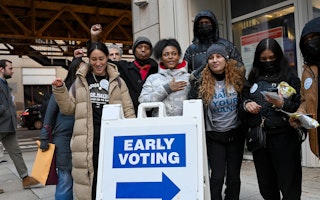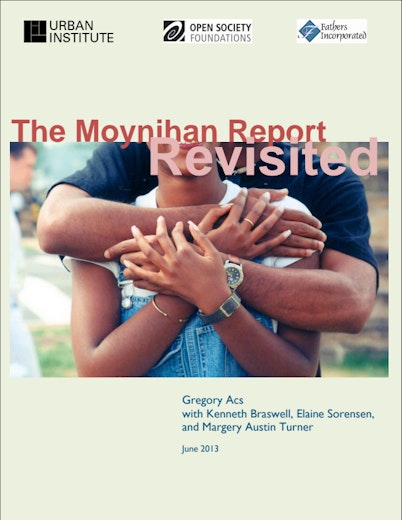Few pieces of social science research have stirred as much controversy or had as great an impact as 1965’s The Negro Family: The Case for National Action. The U.S. Department of Labor report, more commonly referred to as the Moynihan report after its author, Daniel Patrick Moynihan, focused on the deep roots of black poverty in the United States.
Moynihan argued that the decline of the black nuclear family would significantly impede blacks’ progress toward economic and social equality. Over the ensuing decades, the report has been hailed by some as prophetic and derided by others as a classic example of blaming the victim. To this day, scholars and advocates concerned about poverty and economic opportunity continue to revisit the issues raised in the Moynihan report.
This report revisits Moynihan’s analysis and examines the state of black families today, some five decades after Moynihan’s work. In addition to gauging how the circumstances of black families have changed over time, it compares them with other racial and ethnic groups.
Although social progress has opened the doors of opportunity to many talented members of the black community, large socioeconomic gaps between blacks and whites remain. Black poverty rates and unemployment rates are considerably higher than those of whites, and black children are more likely than white children to reside in single-parent households. Indeed, the high rates of single parenting that Moynihan identified in the 1960s have only grown higher since, but they have done so for all racial and ethnic groups.
Read more
Online Hate Speech
New SEC Complaint Says Meta Misled Shareholders over Myanmar Hate

A whistleblower complaint to the SEC argues that the social media giant Meta misrepresented its role in fueling violence against Myanmar’s Rohingya—highlighting the need for more platform accountability for online hate.
Civic Engagement
Bolstering Women and Youth, Linchpins of Democracy

Philanthropy has historically underfunded women and youth. Open Society’s new $50 million investment in their engagement addresses that imbalance—and builds on recent surges in civic engagement crucial to the future of American democracy.
Art and Activism
Reimagining January 6th

The insurrection at the U.S. Capitol left him in a cold sweat. Creating a comic book seemed like one way to reach people not obsessively following the news and spark activism to help defend a multicultural democracy.
